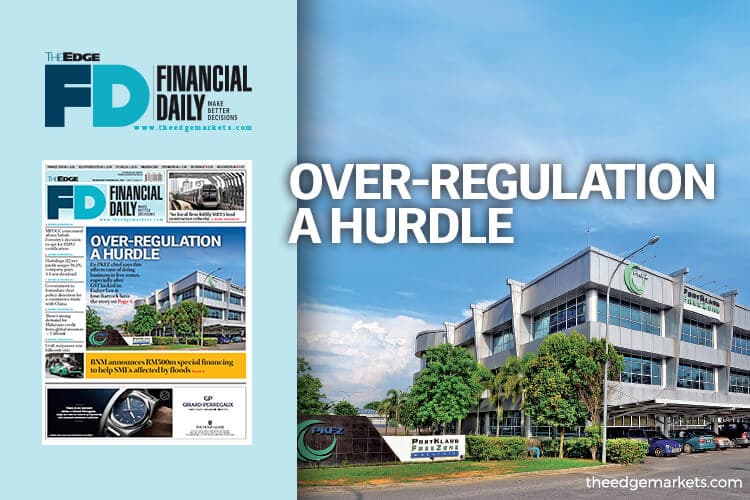
This article first appeared in The Edge Financial Daily on November 8, 2017
KUALA LUMPUR: The over-regulated environment in free zones has affected the ease of doing business and nudged up costs, said recently retired Port Klang Free Zone (PKFZ) chief executive officer Datuk Chia Kon Leong (pic).
In an interview with The Edge Financial Daily, Chia, in reminiscing his 10 years in the PKFZ said: “We couldn’t overcome this challenge [of over-regulation] — it made us very tired. And in the course of all this, the ease of doing business was affected — especially [for those] starting new businesses.
“When the ease of doing business is not there, the cost of doing business goes up. When you can’t get things done, for example you can’t get your goods out, you will need to hold your goods and [the] holding cost goes up as well as cost of storage,” he said.
Chia’s comments came on the back of Malaysia falling one notch to 24 in the World Bank’s annual ease of doing business rankings, released last week.
The report, a survey conducted in 190 countries, looks into the processes that an entrepreneur has to go through to start and operate a business in the country. This year, Malaysia fell a notch despite a better overall score of 78.43, compared with last year’s 77.47.
According to Chia, the over-regulated environment was among the reasons why Jebel Ali Free Zone Authority (Jafza) — which previously managed PKFZ but pulled out in 2007 — faced difficulty in the PKFZ.
At the time, Jafza said it was withdrawing because it was realigning its business strategy and was interested in free zone developments where it could retain operational control as an equity stakeholder.
The PKFZ was initially modelled after Dubai’s Jebel Ali Free Zone, which is such a success that it contributed over 20% of Dubai’s gross domestic product. More than 30 other free zones have been set up in the United Arab Emirates, which were modelled after it.
“Jafza asked to be given some autonomy like in [the] Jebel Ali Free Zone. They have a one-stop agency for approval and it’s given a lot of power by the ruler of Dubai there. But that didn’t happen here,” said Chia.
Chia, who has been with the PKFZ since July 2007, stressed that the “over-regulation” needs to be checked, especially with the implementation of the goods and services tax (GST), which came into effect in 2015.
The GST Act is deemed to have superseded the Free Zone Act 1990, taking away some advantages available under the Free Zone Act for free trade zones such as the PKFZ.
For instance, under Section 4 of the Free Zone Act 1990, it stipulates that goods and services in the free zone are exempted from tax, which is essentially the sales and service Tax (SST) that was in place before the GST. However, when the GST was implemented and the SST regime repealed, no amendments were made to Section 4 of the Free Zone Act, which resulted in an inconsistency.
“So today, as far as free zones are concerned, the supply of goods is not an issue, but [the] supply of services is — as tax is applicable. They (customs) say it can be claimed back. But do you understand how business is done in the free [trade] zone?
“There are foreigners there. If you tell them that in order for them to claim back the tax, you have to employ an agent and other requirements, they will say ‘Why is it so difficult? In Singapore, there is no such issue’,” he said.
Chia said only about 20% of the services in the free zone are liable for GST now, and that the GST Act does allow for relief from tax on a case-by-case basis, under the powers vested with the finance ministry. But it is time-consuming to get approvals granted.
“After all this, the issues that were there are still there. We need a holistic approach to tackle it,” he added.
Despite the challenges, Chia shared that the 1,000 acres (404.69ha) of land in the PKFZ have been fully allocated and will be completely built up by early 2019, after which he hopes a PKFZ2 will be mooted.